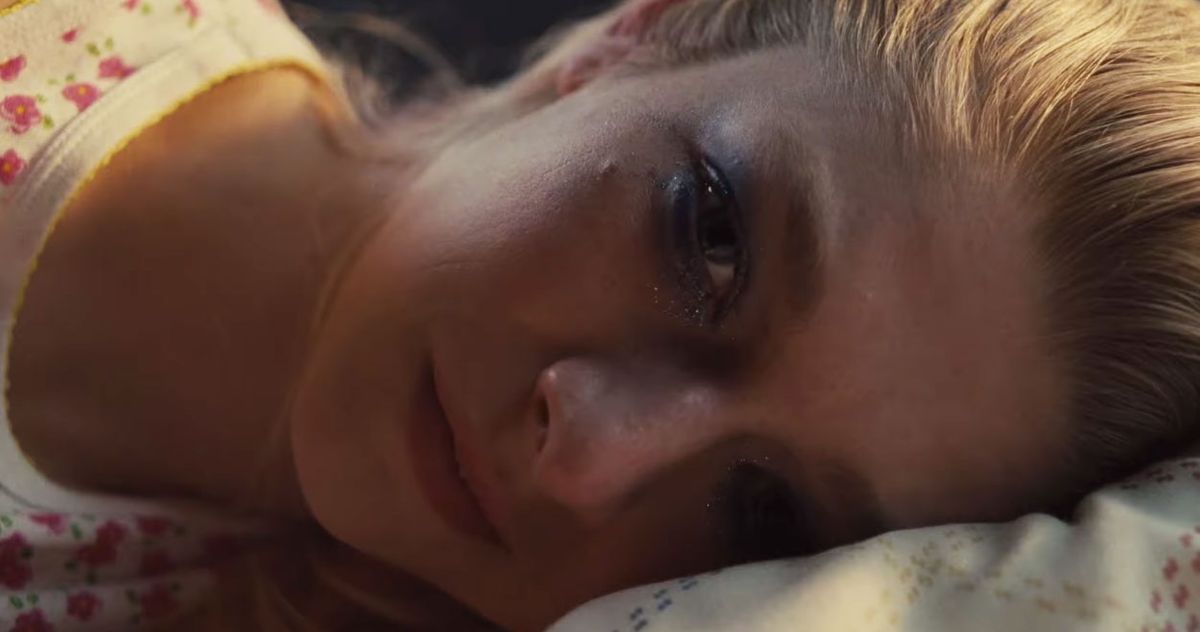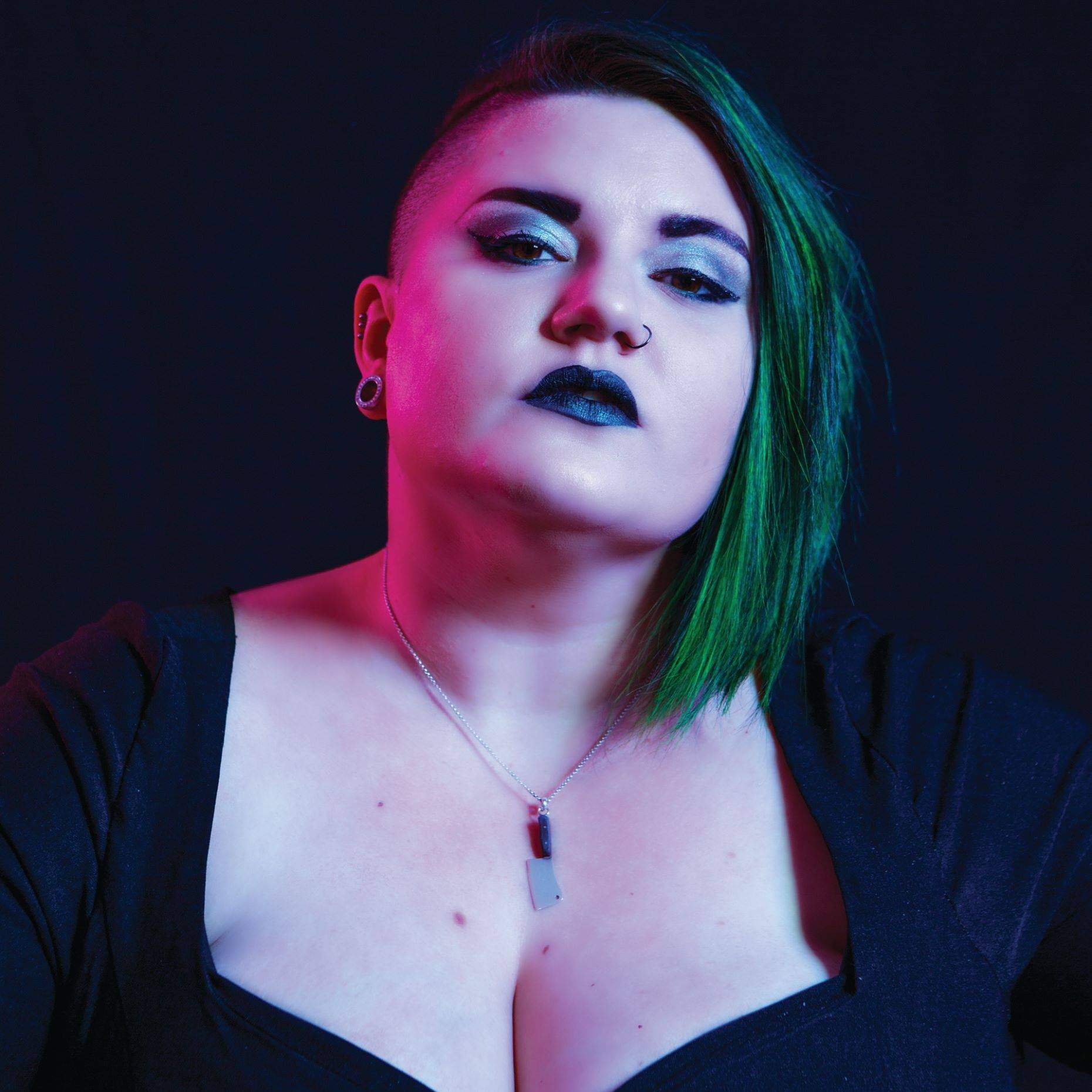Euphoria special — “F*ck Anyone Who’s Not a Sea Blob”.
In Euphoria's second special episode, Jules bares her soul and breaks our hearts.

This post contains spoilers for Euphoria.
HBO Max subscribers were given a gift this Friday when the second Euphoria special debuted two days earlier than the HBO channel launch. In another stripped-down episode filmed during the pandemic, “F*ck Anyone Who’s Not a Sea Blob” was co-written, co-produced, and storyboarded by actor Hunter Schafer, and shifts the focus to Jules during a therapy session on Christmas Eve. Where Rue’s episode was about getting the tough love she needed to be brought back to reality, Jules’ episode was about accepting the reality that love is tough--especially for someone still trying to find herself.
When we first met Jules in Euphoria’s first season, she had recently transferred to East Highland High School after moving to a new place with her dad. She started an incredibly complicated relationship with Rue and continued her vice of sexting and having sexual encounters with strangers. The season ended with Jules and Rue planning to catch a train and run away together to live in the city, only for everything to fall to pieces when Rue had second thoughts and Jules left anyway. Now, in this therapy session, Jules fills in the blanks of what happened leading up to that moment, while simultaneously putting together the pieces of who she is.
“F*ck Anyone Who’s Not a Sea Blob” opens with the usual pleasantries of starting a new therapy session, but soon drops a bomb on Dr. Nichols (the always excellent Lauren Weedman) by confessing, “I think I want to get off my hormones.” For the entirety we’ve known Jules, her femininity and transness have always been paramount to her identity. Her therapist asks if this means she’s been thinking about de-transitioning (the cessation or reversal of a transgender identification or gender transition, whether by social, legal, or medical means) and Jules immediately corrects her by delivering one of the most brilliant monologues about transfemininity:
“Basically, I feel like I’ve framed my entire womanhood around men,” she says. “When, like, in reality, I’m no longer interested in men. Like, philosophically, what men want... What men want is so boring and simple and not creative, and I look at myself and I think, How the fuck did I spend my entire life building this, like my body and my personality and my soul, around what I think men desire? Just like, it’s embarrassing. I feel like a fraud.”
Throughout the course of season one, it was always apparent to viewers that Rue and Jules were absolutely and completely in love with one another. The intimacy shared between them was unlike anyone else on the show, because Euphoria recognizes the importance of intimacy in moments that aren’t inherently sexual. For a show that presents sex in some of its rawest forms, Rue and Jules frequently expressed their affinity for one another in smaller moments like pressing foreheads together while holding hands, brushing loose strands of hair away that have fallen in front of the others’ face, holding a face in a lap while cleaning off makeup--or something as simple as Rue injecting Jules with her hormones.
Many praised Rue’s special episode for its minimalist approach to structure, but Jules’ episode featured a return to Euphoria’s form scattered intermittently throughout her therapy session. Reality, fantasy, memory, and horrific nightmares swirl together and offer a visual representation of the complicated emotions pulling Jules in endless directions all at once.
The latest updates, reviews and unmissable series to watch and more!
She knows that she is no longer interested in men, but she also knows that she feels a great sense of validity and affirmation by sharing intimate relationships online with men she’s never met in person. She knows that she is in love with Rue, but also that she’s never been in love with a woman before. She knows that Rue is the only other person to truly “see her” other than her own mother, but that both of these women are fundamentally incapable of recognizing how their addictions impact her.
"I'm sorry, I don't know why I'm crying," she says to her therapist. "Because it hurts," she replies.
Jules’ main conflict is coming to terms with the fact that so much of what she feels and knows is in direct opposition with other things she feels and knows. Throughout season one, Jules was a candy-coated pixie in design, adorned with bedazzled eye makeup, glittery tops, sequined dresses, pastel hair, and ethereal beauty. Now, she sits barefaced in a room in an oversized sweater and black boots--a visual representation that the fantasy world she had been living in for so long has been dismantled, and now she’s left to make sense of what is real and what is not.
“I feel like real life is always such a letdown.”
Jules confesses to her therapist that she still has residual feelings for a boy she had been talking to online, who ultimately doesn’t exist. She knows that she felt a very real connection and gratification from talking online with “Tyler,” but also knows that it’s the source of great pain as “Tyler” was nothing more than toxic masculinity incarnate, Nate Jacobs, catfishing her. There’s safety in seeming anonymity, and comfort in developing a connection with someone from the distance of a cell phone screen. Those feelings that develop are real, even if the circumstances have one fit firmly planted in fantasy. As someone who met their transgender wife on Tinder, the things Jules expresses have been echoed in many of our own conversations about the internet offering a space of feeling like you’re being seen, valued, and ultimately, loved.
All Jules wants is for someone to love and appreciate her beyond the “hundreds of layers” she’s been wearing like armor to protect herself from the men and women who size her up, despite the fact she is still struggling to figure out who she is, who she wants to be, and how to overcome the pain all of this turmoil is causing inside of her. “I think, like, I want to be as beautiful as the ocean,” she tells her therapist. “Because the ocean’s strong as fuck and feminine as fuck—like, both are what makes the ocean the ocean.” As we see a shot of Jules laying on the beach, she is enveloped by the water in perhaps one of the only moments of peace she experiences in the entire episode.
At that moment, it’s impossible not to think of special episode one, “Trouble Doesn’t Last Always,” wherein Rue lists off to her sponsor the things she views as a higher power, on a godlike level. "A Mack truck, an ocean, any song by Otis Redding."
Jules asks her therapist, “How could it be possible that Rue loved me as much as I loved her?” She replies with an impossible question that Jules and so many others will spend their entire life trying to find an answer to, “I think the better question is why would you think that would be impossible?”
Love is hard. Relationships are hard. Growing up is hard. But if we allow ourselves the ability to be as broad, deep, and thick as the ocean, we can truly exemplify the reality that we are all capable of becoming our own higher power, and loved for it.
More on Euphoria...
BJ Colangelo is an award winning filmmaker and film analyst specializing in dismissed cinema and television. She writes about horror, wrestling, musicals, adult animation, sex and gender, kicking pancreatic cancer’s ass, and being a fat queer in places like Fangoria, Vulture, The Daily Dot, Autostraddle, Playboy.com, and a handful of books college students get assigned to read. She’s also the co-host of the teen girl movie podcast, This Ends at Prom, with her wife, Harmony.


